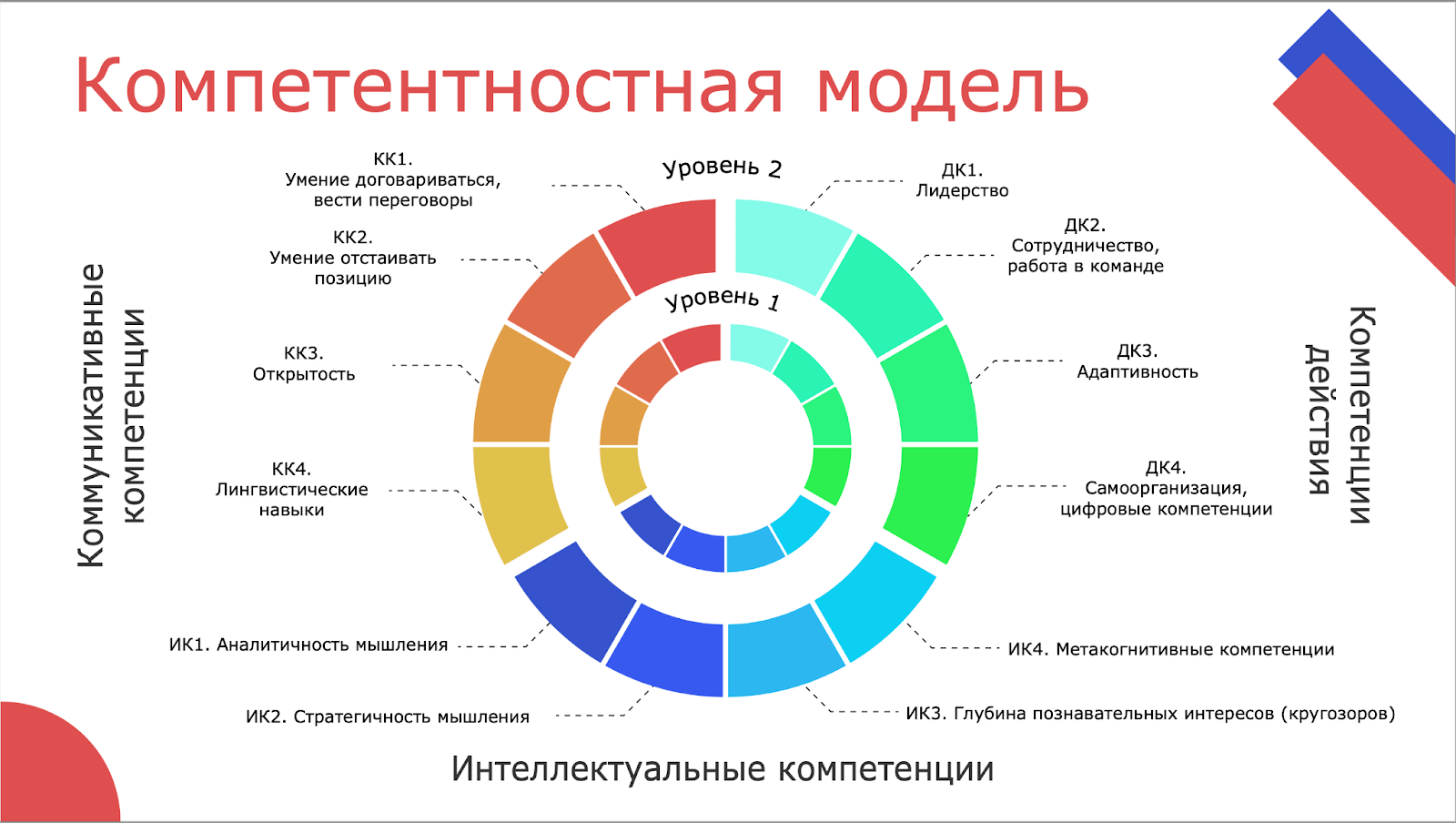The development of the knowledge model is almost completed

“Where there is no room for ability, there is no ability”
L. Feuerbach
In the second half of 2022, as part of the research programme of the "Russian Schools Abroad" Strategic Project of the Priority 2030 state programme, an expert team led by Ksenia V. Belysh, PhD in Economics, worked on a project to develop an alternative knowledge test model for selecting students for admission to educational institutions, including RSA schools.
Experts, including a number of MGIMO deans, have noted that the use in pedagogical practice of existing approaches and mechanisms of knowledge assessment of students does not meet modern demands of universities for applicants and the labor market for young professionals. Additional mechanisms are needed to assess the psychometric parameters and competencies of students. By combining the knowledge-based and competence-based approaches, the selection system in the student-student-employee chain can be more finely tuned and further adjusted.
As part of the research, the project team developed a methodological approach to implementing an alternative knowledge test model that relies on the development of a competence matrix corresponding to a specific learning profile and uses the Digital Learning Footprint as a collection of results and the output of a comprehensive assessment on that basis. The team includes experts in educational and management technologies: Roman Igorevich Kotov, Advisor to the Rector, Elena Alexandrovna Kozlovskaya, PhD in Economics, Director of Odintsovo branch, Andrey Andreevich Sushentsov, PhD in Political Science, Dean of International Relations Faculty, Evgeny Vladimirovich Pogrebnyak, PhD in Economics, Dean of Financial Economics Faculty, Ilya Sergeevich Demakov, Director of MGIMO Gorchakov Lyceum , Anastasia Viktorovna Kuzmina, Deputy Director of MGIMO Gorchakov Lyceum; Antonina Gromyko, Project Coordinator, Skolkovo Institute of Science and Technology; Alexander Chikurov, Project Manager, Schiffers Institute; Olga Glazunova, Technology Developer, Schiffers Institute; Sergey Krasko, Co-Founder of IBLS digital education platform; Yulia Koktysh, Executive Director of RSA project.
On October 13, 2022 the developed actual competence matrix was successfully presented and defended by specialists of ANO "Schiffers Institute" - candidate of psychological sciences Olga Igorevna Glazunova, Head of the project team Alexander Vladimirovich Chikurov and adviser on international and educational projects, graduate of MGIMO Antonina Yurievna Gromyko - at session "Approaches to competence diagnosis in practice of MGIMO Lyceum " of XIV RAMI convention. The model developed is based on the think-tank approach. The model assesses three types of competences: intellectual, communicative, and action competences. Within each group, four specific competences are distinguished, and two levels of competence are conditionally defined for each of them. Specific indicators are set for each level, by which competences can be assessed by a teacher, psychologist or other expert.
Next, the research team proposed a comprehensive methodological toolkit for implementing the developed approach to provide an alternative model for testing knowledge and competencies to select students for subsequent enrolment through the use of a digital learning environment. They offered a detailed description of the required functionality, roles and business processes to be implemented in the digital learning environment, which would help to implement assessment of the available competencies through the use of software. The developed alternative model will thus help to identify the qualities and skills of the learners, the strong areas and the growth areas of each, enabling the institution to make a more accurate, efficient recruitment of learners.
The team is now presenting its work to the expert community and collecting feedback and comments. V.T. Kudryavtsev, Doctor of Psychology, Professor of the Directorate of Educational Programmes of the Moscow City Pedagogical University, said: "The proposed project is relevant and in demand in today's education system, and the fields of application of the developed competence model and assessment format can be very diverse and applicable to almost any professional area."
Based on the results of the assessments, the terms of reference for the prototype will be finalized and tested in 2023 at the MGIMO Gorchakov Lyceum and RSA schools.
Reference:
The Russian Schools Abroad project (RSA) is one of the five strategic projects implemented by MGIMO within the framework of the Priority 2030 state programme aimed at supporting Russian universities. The project meets the current need of Russian-speaking citizens and foreigners for a highquality secondary and additional education outside the Russian Federation. In 2022, the first two schools were opened - in Tashkent (Uzbekistan), Bishkek (Kyrgyzstan). At least 15 RSA schools will be opened abroad by 2030.
Back

